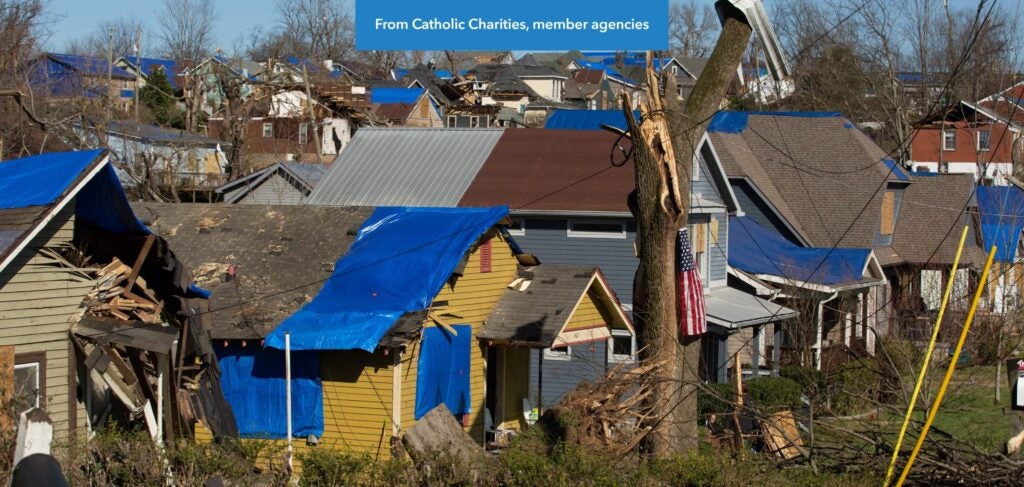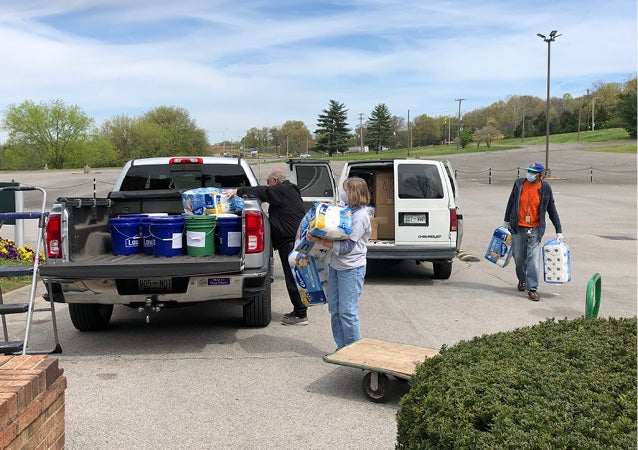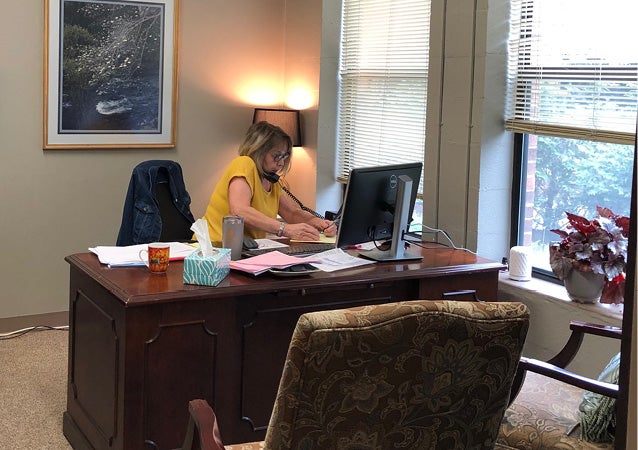

By Judy Orr, Executive Director, Catholic Charities of Tennessee
Fresh from new director training at Catholic Charities USA (CCUSA) headquarters in mid-February, I was reenergized to tackle my goals of elevating the Catholic Charities of Tennessee’s profile and increasing fundraising. Three weeks in March 2020 accelerated all that.
On March 3, at 12:38 a.m., a tornado with wind speeds up to 165 mph ripped across the region with only minutes’ warning, decimating a portion of North Nashville where we have a significant presence.
By 7 a.m., I had already heard from Brian Corbin and Kim Burgo at CCUSA, offering prayers, support, and a reminder that we could apply for an instant disaster relief grant for $10,000.
Before lunch, my disaster team was meeting to understand the scope of the disaster and how we would interface with Nashville’s overall disaster response. Fortunately, our own locations were not too badly damaged, considering the damage to nearby neighborhoods included roads being impassable.
By 1 p.m., we had a tornado relief page live on our website that helped us raise additional funds. Donations poured in quickly and totaled nearly $10,000 within days.
Our agency has several people experienced in responding to crises, including work during the epic 100-year flood that hit Nashville in 2010 and devastated thousands of homes across the region. That said, we are not “first responders.” We opened our North Nashville neighborhood center to other organizations providing immediate relief and began participating in the long-term recovery planning effort led by the Tennessee Emergency Management Agency (TEMA).
I was buoyed knowing that Kim Burgo would arrive the week of March 23 to take charge, and would drive the CCUSA mobile response unit, bringing with her four disaster relief workers borrowed from other agencies. But on March 17, all tornado relief efforts ground to a halt because of the coronavirus pandemic. TEMA redeployed to assist with COVID-19, and our CCUSA team was in lockdown.

By then we were receiving calls for financial assistance when restaurants were ordered to serve at reduced capacity and retail establishments started closing.
Knowing Nashville had established a COVID-19 Response Fund, I assembled our emergency assistance case managers to get their input on a relief plan. They suggested calling the mayor’s office to tell them we are experts at helping displaced people, and that we have the capacity to help, because some of our programs were being closed due to coronavirus.
On Thursday, March 19, United Way of Greater Nashville called to say they wanted us to be among the first partners to distribute the Response Fund. We expected to be up and running within a week. The next day, as I drove home, I heard the radio announcement that Catholic Charities would be distributing money from the fund.
My heart skipped a beat, because they didn’t tell us we’d start the very next day. But by Sunday afternoon, we had an online application form ready and two staff poised to take applications. Our intake team grew to 12 within a week and peaked at 20 during the process, with several staff dedicated fulltime to the program.
Our improvised “call center” served both COVID-19 and the tornado team, who could no longer meet people face to face. After several weeks, we began contact-less delivery of household supplies, with help from Society of St. Vincent DePaul volunteers.
To date, we have distributed $313,000 in financial assistance for job losses related to COVID-19, and we expect to distribute even more in tornado relief as the city reopens.

I have learned so much about myself as an executive director and the talents of my staff as we handled these dual crises. Here are just a few of my thoughts:
- Never be afraid to ask for help. People are very eager to help when you are a new leader.
- Seek out the best counsel available. The resources and expertise of CCUSA were invaluable to me, as was the real-life experience of my team.
- Offer to help. My call to the Mayor’s office resulted in us being recognized as experts in emergency financial assistance.
- Be creative and flexible where you can. None of us had experience working a pandemic, but we figured it out together.
- Focus on what your organization does well. Recognize whatever bench strength you’ve got and run the ball when the community needs it.
- View crises as opportunities to grow. We’ve learned new ways of working together as a team and have developed stronger community partnerships.
- Always keep your faith…and a rosary in your pocket.








